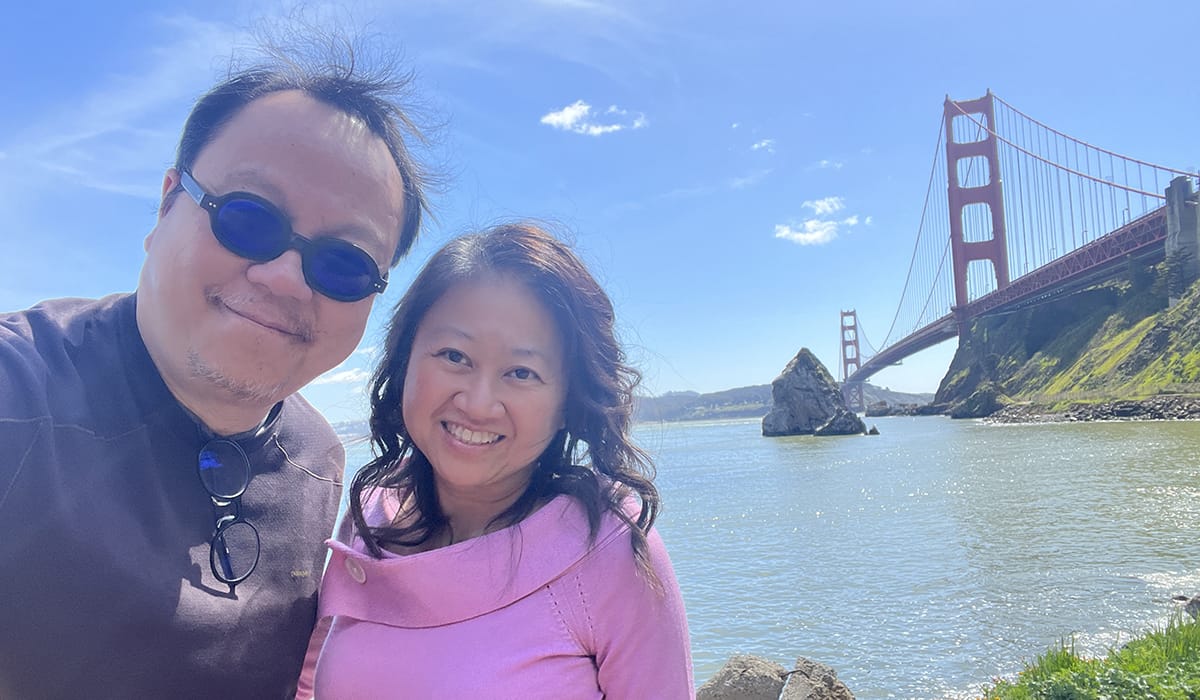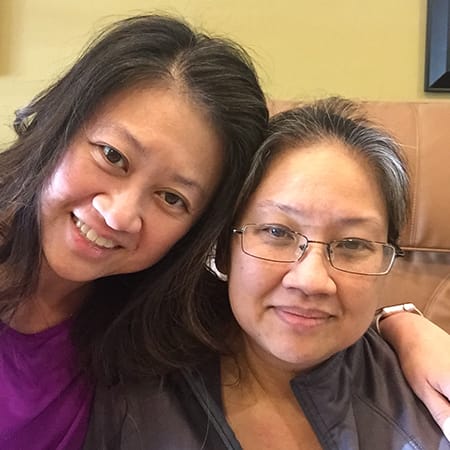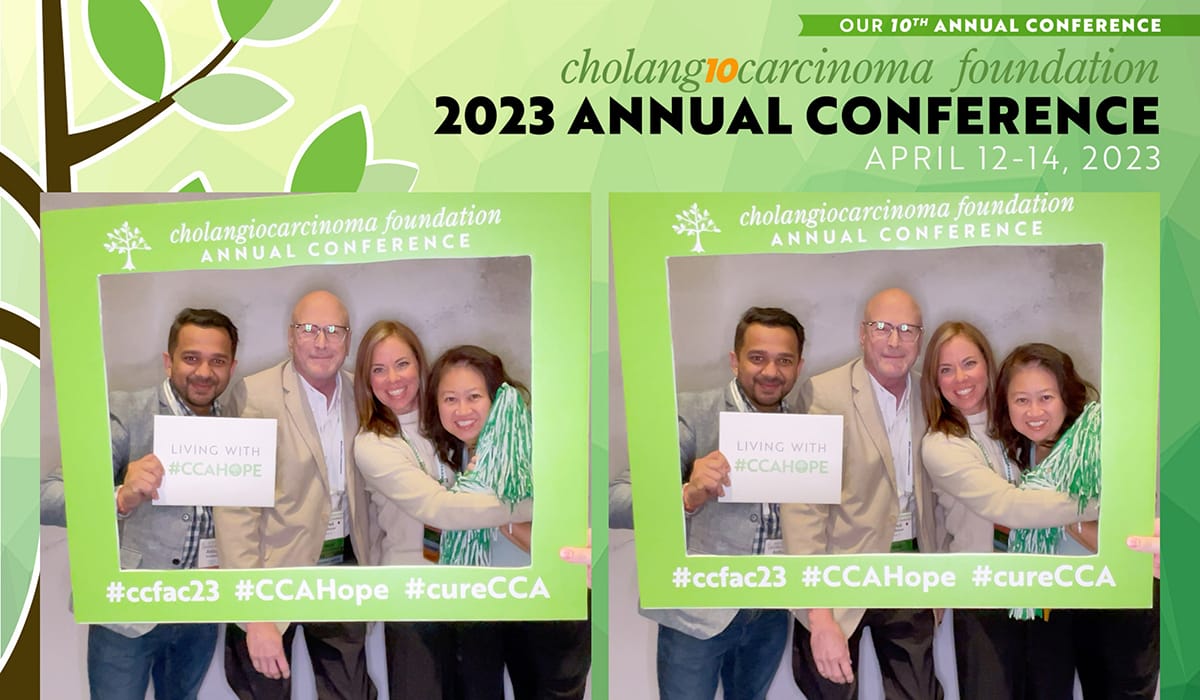Texas Attorney Advocates for Patients and Caregivers Fighting Cholangiocarcinoma

Meet Daily Point of Light Award honoree Toni Pham. Read her story, and nominate an outstanding volunteer or family as a Daily Point of Light.
Toni Pham was just 2 years old when her family moved to the U.S. from Vietnam. Today, she has a successful career as an attorney and real estate broker where she advocates for clients. Her passion for advocacy was born amidst hardship when, as a young girl, her father was diagnosed with kidney failure. Toni was 16 when he passed. Often being in the hospital setting, she quickly recognized that patients like her father needed someone to help them get what they needed.
Decades later, a second tragedy left her even more motivated to help others. When her sister passed away from cholangiocarcinoma, a rare and aggressive form of cancer, Toni felt called to use her difficult experience to guide others through the diagnosis and help them get the best care possible. For the last four years, she has served as a research and patient advocate for the Cholangiocarcinoma Foundation and sits on multiple patient advisory boards. She also participates as a one-on-one mentor for caregivers and patients, supporting over 150 people so far.
As Toni celebrated her 50th birthday this year with a low-key evening and lots of sushi, she continues to celebrate her sister’s life and legacy. Her tireless efforts to fight and lead others through this disease are, in turn, celebrated by many.

What inspired you to get started with this initiative?
Being a patient advocate felt like a natural evolution of life experiences and my profession. When my sister, Nicole, was diagnosed with advanced stage cholangiocarcinoma, it was devastating. I dove into learning about clinical trials, because I knew that only about 30% of patients have any beneficial response to the first line standard of care, chemotherapy. Unfortunately, the trial that we looked at to combine with that did not open in time, and due to the advanced stage, we made the decision to continue with chemotherapy.
When that didn’t benefit my sister, the earlier biomarker testing we had done led us to three clinical trials. She was the very first cholangiocarcinoma patient on the trial she chose. I had studied the science, and we really believed in the mechanism of action. She had a wonderful response and a good quality of life on it, and I’m glad to say that other patients have now benefited from that same treatment.
Nicole helped so many people throughout her life before cholangiocarcinoma, and she continues to help people now because of her bravery. I feel like it would be irresponsible of me to have this knowledge and experience with everything that we went through and not pay it forward. I try to be the person that I needed during my journey.
Tell us about your volunteer role with the Cholangiocarcinoma Foundation.
I serve as a research and patient advocate. That involves attending some educational webinars and conferences, being actively engaged in research. I share that information with other research advocates and the foundation.
I’ve been able to serve on patient advisory boards including for the investigational drug, zanidatamab—originally called ZW25—the clinical trial drug that my sister was on. It has since been granted “Breakthrough Therapy” designation by the FDA, and we expect to see it approved soon for HER2 positive biliary tract cancers. Advisory boards shape further development of the clinical trial and give them insight into the patient experience. And we review proposed educational materials for patients and caregivers by the foundation or drug manufacturers.
I also serve as a mentor and work one-on-one with a caregiver or a patient to provide them with social or emotional support and to provide them with resources, clinical trial opportunities, symptom navigation, etc. I do a lot of research, particularly on clinical trials. Some people don’t realize their own treating institution can be a great resource. My sister was treated at MD Anderson, and they have a medical library. They’ll help you find medical journal articles. Similar to what I did for my sister, I help mentees compare and analyze treatment options.
Do you have international mentees as well?
The Cholangiocarcinoma Foundation has a global presence. Anybody can request a caregiver or patient mentor through the CholangioConnect Program. I’ve had people in India, Asia, Europe and the Middle East. It’s interesting, because there are time zone, cultural and healthcare system differences, but the science of cholangiocarcinoma is the same.
What’s been the most rewarding part of your work?
The best part of my day is when I get to talk with mentees about how they’re doing or seeing improvements in the condition of a patient or just knowing that you’ve made them feel less alone. You develop these lifelong friendships, because you’re their first point of contact when they have a question or want to share how their day is going. You’re providing support and the benefit of your experience so they can make informed choices. Some of my former mentees have now gone on to become mentors because of the positive experience they had.

What are some ways to show support for someone going through a difficult medical journey?
Let them know that it’s okay; whatever their feelings are, they’re valid. It’s okay to have good days and bad days. Show them that you love them and be understanding. Provide them with hope. For me, hope is in having information to make informed decisions about your care.
What do you want people to learn from your story?
I understand the fear of a cholangiocarcinoma diagnosis, but I also have hope because I’ve seen promising treatments, and I know that the science is moving forward. Knowledge helps to quell the fear. Getting support from a patient advocacy group like the Cholangiocarcinoma Foundation and getting to a specialist who is knowledgeable and actively participating in the research of the disease is key. There are many resources available. Look into getting a mentor and attend conferences as you’re able.
When my sister was diagnosed, it was a scary time. Most of it was because of what we didn’t know. I told her, we have two roles in this: my job was to provide her with the best care that I could find, and her job was to focus on healing. That ultimately, was the best result for Nicole. Arm yourself with knowledge, get the best care that you possibly can and advocate, advocate, advocate.
Do you want to make a difference in your community like Toni? Find local volunteer opportunities.
